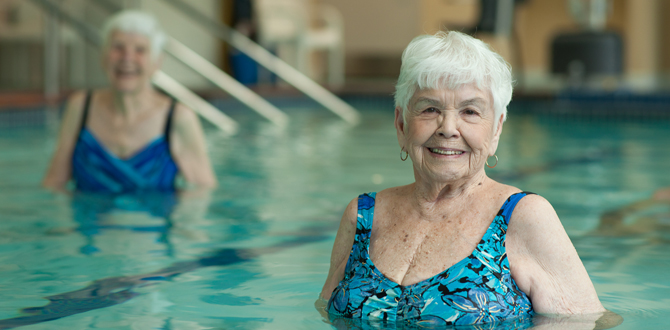Age’s Impact on the Lungs
How often do you think about your lungs? Breathing is so automatic that it’s unlikely you give them much more than a passing thought. But just like all our other organs, the lungs require maintenance and protection – especially as we begin to age. As it turns out, our lungs have quite the head start when it comes to aging. According to the American Lung Association (ALA), our lungs mature by the time we’re 20-25 years old, and once we reach 35, their functionality actually begins to diminish due to certain age-related changes. And as we get even older, these changes to the lungs – and other surrounding body parts – can make breathing more difficult.
- Air sacs, found within the lungs, which help with the exchange of oxygen and carbon dioxide, lose their shape and elasticity. This then makes exhalation harder and doesn’t allow as much oxygen to make its way into the bloodstream.
- It’s not uncommon to think of the lungs as organs that work independently to facilitate breathing, but they receive quite a bit of help from neighboring organs– namely, the respiratory muscles. One of the most significant within this group, the diaphragm, is responsible for expanding the lungs during inspiration. The diaphragm weakens considerably with age, which makes breathing enough air in and out more difficult.
- Even changes to the rib cage impact breathing. Gradual bone loss – common among older adults – causes the rib cage to thin and even change shape. This makes it harder for it to expand and contract during breathing.
While decreased efficiency in the lungs is, unfortunately, a normal part of aging, it doesn’t mean that seniors can’t take steps to protect their lungs from greater threats. Below are a few tips that senior clients can follow so that they continue to breathe easy.
Ways to Keep the Lungs Healthy
- Don’t smoke, or take steps to quit. Smoking is the primary cause of both lung cancer and COPD, not to mention numerous other health conditions and diseases. Many may feel that they’re “past the point of no return” when it comes to smoking, but evidence shows that it’s never too late. In fact, the ALA notes that lung functionality improves just months after quitting.
- Get regular aerobic exercise (with physician approval). It’s reported that aerobic exercise increases breathing from 15 times a minute to anywhere between 40 and 60. Doing this on a consistent basis allows the lungs to become more efficient.
- Avoid exposure to pollutants. It becomes more difficult for the lungs to resist many of the airborne toxins as we get older. Seniors should stay away from secondhand smoke, avoid going outside when there are reports of air pollution, and modify the home to make it as pollutant-free as possible. This includes dusting and vacuuming weekly, as well as using natural cleaning products whenever possible.
- Prevent respiratory infection. Seniors should wash their hands with warm, soapy water often throughout the day and follow all other hygienic best practices. It’s also recommended that they get the influenza vaccine each year before flu season, and talk to their physician about receiving the pneumococcal pneumonia vaccine.
- Take a deep breath. One of the best ways to make the lungs more efficient is by simply breathing properly. Deep breathing exercises can greatly improve lung capacity and help to eliminate stress.
Comfort Keepers® Can Help
The professional care team at Comfort Keepers® can help senior clients follow these tips to help keep their lungs healthy. We can also help those who may be faced with lung disease or are recovering from respiratory illness. Our caregivers can remind them to take medication and provide transportation to and from any scheduled appointments. Contact your local Comfort Keepers to learn more about our in-home care services. Call (888) 778-9619 today.
Fast Fact
It’s estimated that more than 80% of chronic obstructive pulmonary disease (COPD) cases are linked to smoking.
References:
Healthline. “How Growing Older Impacts Lung Health” by Colleen Story (Medically reviewed by Elain K. Luo MD) Web. 2017.
American Lung Association. “Lung Capacity and Aging.” Web. 2018.
American Lung Association. “Tips to Keep Your Lungs Healthy.” Web. 2018.
MedlinePlus. “Aging Changes in the Lungs.” Web. 2018.

